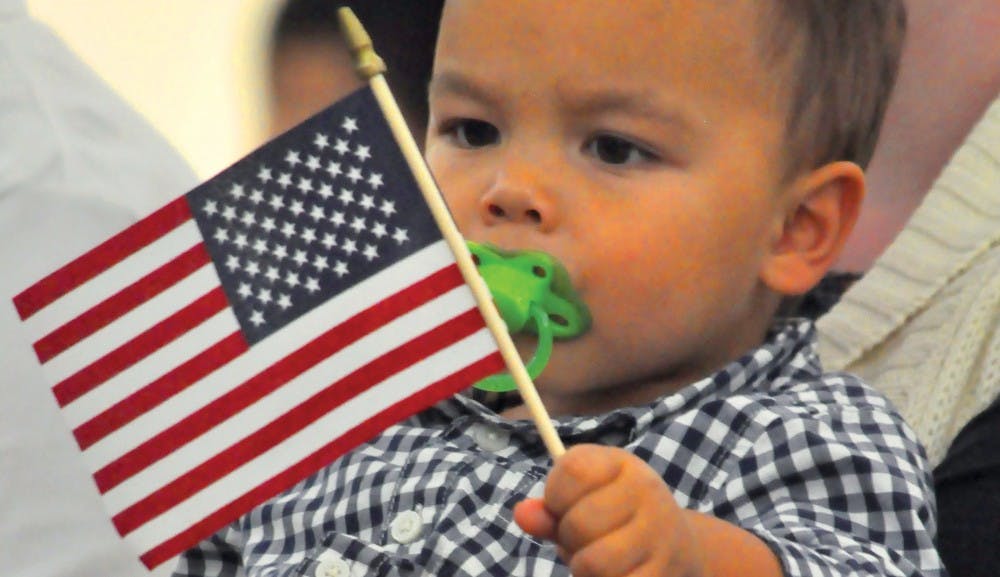CMU hosts Naturalization Ceremony of new citizens

Thirty-four applicants from 17 countries became United States citizens Monday night at the United States Naturalization Ceremony for New Citizens in the Bovee University Center Rotunda.
Surrounded by family and friends, the applicants earned the right to become U.S. citizens amid a night deserving of the pomp and circumstance that followed. For many, this was a unique chance that they had waited years to realize.
"To me, this means freedom. It's really great," said Jeannette Litwiller, a former Canadian who became a citizen-to-be with her husband, Keith.
Many of the candidates accepted their certificates with wide smiles and, in some cases, with tears of joy.
Keynote speaker Vigdis Boasson, a law and finance professor at Central Michigan University, expressed her pride in becoming a citizen of the U.S. just one year ago.
"We've all come a long distance, not only geographically and in terms of time and space, but also in terms of cultural, psychological and spiritual (distance)," she said. "Each of us had to start from scratch, overcome numerous barriers and work a lot harder to prove ourselves for every step forward."
Former Jamacian citizen Kriss-Ann Fletcher derived citizenship through her parents.
"My mom and dad immigrated here, and I've been here for over 10 years," Fletcher said. "I actually already thought I was a citizen until recently."
College of Humanities and Social and Behavioral Sciences Coordinator of Special Events Rae Barrett said this is the first time CMU has hosted such an event. She said these proceedings are usually kept out of public spaces, but an effort was made to integrate it into schools.
CMU alumnus Thomas Brownrigg, the chief of the United States Citizenship and Immigration Service, explained the process even further.
"We're trying to get the community involved in citizenship," Brownrigg said. "People want new laws for immigration, but if people understood what we’re doing and that there are laws that we follow, they'd see it's a really important thing, and it’s a great process."
The event was hosted by the Robert and Majorie Griffin Endowed Chair in American Government and was sponsored by the Department of Homeland Security and U.S. Citizenship and Immigration Services.
Griffin Endowed Chair Gary Randall was the driving force behind bringing the event to CMU.
Randall also gave the welcome address, where he highlighted his passion for the new citizens.
"This is special for you and special for all of America," Randall said. "When you raise your hand and take the oath of allegiance, you are infusing the American spirit with enthusiasm and patriotism."
Applicants must live in the U.S. for five years, or three if married to a citizen, and after applying submit to several tests. These tests include background checks, fingerprinting, demonstrating the ability to read, write and speak words in the English language, as well as demonstrating knowledge of the history and principles of the U.S. government.
Brownrigg said the naturalization process takes around five months to complete after the application is sent.
"I felt very patriotic to see people who are so excited to be citizens," said Pamela Gates, dean of CHSBS. "I think this is what we're about in terms of a public institution and this really epitomizes what it means to be part of a public institution to welcome these citizens into our country"



